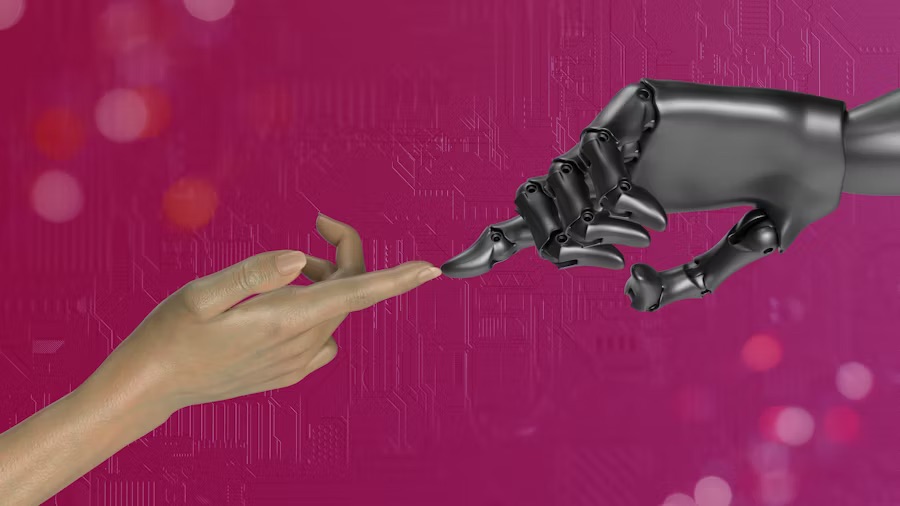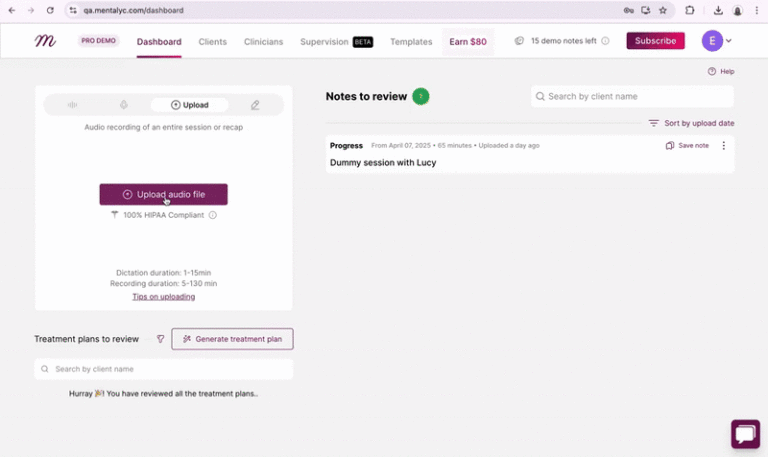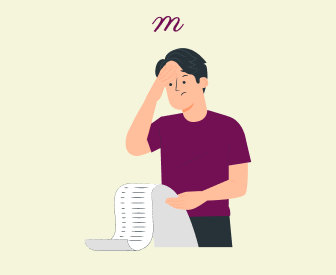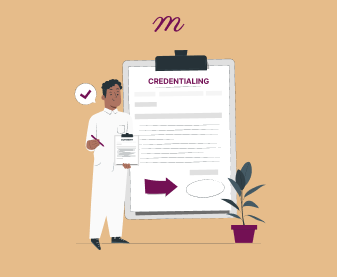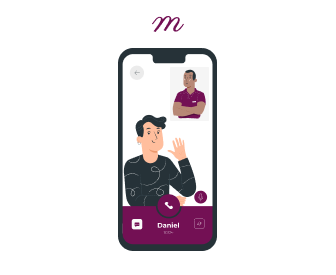Have your progress notes written for you automatically
In the ever-evolving landscape of healthcare, technology continues to play a pivotal role in enhancing patient care and automating processes. The field of psychiatry dedicated to improving mental well-being has also seen significant advancements over the years, not only in therapeutic approaches but also in the way patient data is recorded and managed. One such innovation is the AI Psychiatry Scribe, a groundbreaking tool that transforms the way mental health professionals document patient encounters.
Traditionally, psychiatrists and clinicians relied on human scribes to meticulously document patient interactions, diagnoses, and treatment plans. However, with the rise of artificial intelligence (AI), AI Psychiatry Scribe apps like Mentalyc are entering the scene, promising automated and efficient documentation processes.
In this blog, we will discuss the differences between a Human Psychiatry Scribe and AI-Powered Psychiatry Scribe Systems, exploring their unique advantages, and the impact they have on mental health practices. Along with that, we will also introduce you to the best AI Scribe on the market.
Human Psychiatric Scribe vs AI Psychiatric Scribe: Understanding the Key Differences
Traditional Psychiatry Scribes: The Human Touch
Psychiatry scribes, often trained medical professionals or individuals familiar with the mental health field, play a vital role in capturing and recording patient information during sessions. Their human touch and understanding of medical terminologies allow for comprehensive and contextually accurate documentation.
AI Psychiatry Scribes: The Power of Automation
On the other hand, the AI Psychiatry Scribe is a specialized AI-Powered software solution designed to assist psychiatrists and mental health practitioners in documenting patient interactions effectively. This electronic documentation system captures essential details from patient appointments, therapeutic sessions, and assessments. By employing natural language processing and artificial intelligence, the Psychiatry Scribe transcribes conversations, extracts relevant information, and automatically generates comprehensive notes, offering speed and efficiency.
The Pros and Cons of a Human Psychiatry Scribe
Pros of Psychiatry Scribe:
Contextual Understanding:
Psychiatry scribes can grasp the nuances of patient interactions, capturing subtle cues and emotions that might be missed by AI.
Personalized Approach:
Human scribes can adapt their documentation style to match individual psychiatrists preferences, providing a tailored experience.
Real-time Clarifications:
When uncertain about a patient’s symptoms or history, scribes can seek immediate clarification from the clinician.
Cons of Psychiatry Scribe:
Time and Cost:
Employing human scribes can be time-consuming and expensive, especially for smaller practices.
Human Errors:
Scribes, like any human, may occasionally make mistakes, leading to inaccuracies in the documentation.
The Pros and Cons of an AI-Based Psychiatry Scribe
Pros of AI Psychiatry Scribe:
Enhanced Efficiency and Time Management:
By automating the documentation process, psychiatrists can focus more on patient care and spend less time on administrative tasks. The Psychiatry AI Scribe streamlines the Psychiatry note-taking process by processing information rapidly, enabling mental health professionals to manage their time efficiently and enhance productivity.
Consistency:
Human error is inevitable in manual scribing, which may lead to inaccuracies in patient records. The AI ensures a standardized documentation approach, accuracy, and consistency, reducing the risk of errors, discrepancies, and critical information being missed or misrepresented.
Cost-effectiveness:
Over time, AI Psychiatry Scribes can be more cost-effective than hiring human scribes.
Cons of the AI Psychiatry Scribe:
Contextual Limitations:
AI may struggle to understand emotional subtleties or sarcasm, impacting the accuracy of certain reports.
Data Security Concerns:
As AI processes sensitive patient data, ensuring robust data security becomes paramount.
Before moving further, we need to understand that this comparison of human Psychiatry Scribe vs. AI Psychiatry Scribe is not a competition but rather a collaboration where human expertise and technological advancements merge to improve patient care. While AI Psychiatry Scribes offer efficiency and speed, the human touch of psychiatry scribes ensures empathy and understanding during patient interactions.
As technology continues to evolve, we can expect the future of mental health documentation to integrate AI with human support seamlessly. After all, it is the well-being of patients that remains at the core, and these innovative approaches ensure a brighter and more efficient future for mental health professionals and their patients alike.
Mentalyc – The Best AI Psychiatry Scribe Software
Mentalyc is an advanced AI-powered psychiatry scribe software designed to assist mental health professionals in their clinical practice. With machine learning and natural language processing (NLP) capabilities, it revolutionizes the way psychiatric sessions are conducted and documented. Mentalyc empowers mental health professionals to provide more efficient, personalized, and effective care to their patients while keeping up with the demands of modern psychiatric practice.
How Mentalyc AI Psychiatry Scribe Works
The Mentalyc AI Psychiatry Scribe operates seamlessly with the following essential steps:
Automated Data Capture:
The Psychiatry Scribe’s sophisticated algorithms analyze the recorded conversation, capturing pertinent details while maintaining patient privacy.
Generating Comprehensive Notes:
Based on the captured data, the Psychiatry Scribe generates comprehensive and structured documentation, covering all the relevant aspects of the patient encounter.
Review and Edit:
Before finalization, mental health professionals have the option to review and edit the generated notes to ensure accuracy and add any additional insights.
Secure Storage:
The completed documentation is securely stored in the system, accessible only to authorized personnel, adhering to strict data protection regulations.
Mentalyc’s Key Features
Mentalyc transcribes the entire psychiatric session, accurately capturing the dialogue between the patient and the mental health professional. This feature allows clinicians to focus more on patient interaction and less on note-taking.
Language Profiling:
Mentalyc analyzes the language used by the patient and the psychiatrist to detect potential linguistic markers related to mental health conditions. It can aid in early detection and provide additional insights for diagnosis and treatment planning.
Privacy and Security:
Mental health records are highly sensitive and must be handled with the utmost care to maintain patient confidentiality. Mentalyc prioritizes patient privacy and complies with strict data security protocols. All information is encrypted and stored securely to maintain confidentiality and protect patient data from unauthorized access.
Mentalyc provides notes on the patient’s progress over time, highlighting treatment effectiveness and areas for improvement.
Benefits of Using Mentalyc
Enhanced Productivity:
Mentalyc significantly reduces the time spent on documentation, allowing clinicians to see more patients and focus on delivering quality care.
Accurate Documentation:
The software’s transcription accuracy ensures that crucial session details are captured with precision, leading to better treatment decisions.
Data-Driven Insights:
Through data analytics, Mentalyc provides valuable insights into patient trends, treatment outcomes, and therapy efficacy. Mental health practitioners can make informed decisions and refine their treatment approaches based on these data-driven insights.
You Might Be Thinking
What sets Mentalyc Psychiatry Scribe apart from other generic note-taking software?
The Mentalyc AI Psychiatry Scribe is designed and trained specifically for mental health practitioners, ensuring it captures the nuances and complexities unique to psychiatric encounters. It employs specialized algorithms for mental health-related natural language processing.
Is the AI Psychiatry Scribe cost-effective for small practices?
The cost-effectiveness of the Mentalyc AI Psychiatry Scribe varies depending on the provider and the size of the practice. However, the benefits of improved efficiency and enhanced patient care can outweigh the investment.
Can the Psychiatry Scribe generate different types of notes for various psychiatric specialties?
Yes, the Mentalyc Psychiatry Scribe can be adapted to accommodate different psychiatric specialties and their specific documentation needs, ensuring a versatile and comprehensive solution.
Can Mentalyc Scribe be used with existing electronic health record (EHR) systems?
Yes, Mentalyc is designed to seamlessly integrate with popular EHR systems, making it easier for mental health professionals to incorporate the tool into their practice.
Are AI Scribes replacing human scribes entirely?
While AI is automating many tasks, human scribes’ expertise remains invaluable for nuanced patient interactions and context.
Can the AI Scribes understand various accents and dialects?
Yes, modern AI software such as Mentalyc is designed to handle diverse language patterns and accents, improving their understanding over time.
How do AI Psychiatry Scribes maintain patient data privacy?
Protecting patient confidentiality is a top priority for AI Psychiatric Scribes like Mentalyc. Mentalyc is HIPAA-compliant and sticks to strict data protection regulations, and implements robust security measures to safeguard patient information.
Conclusion:
In conclusion, the AI Psychiatry Scribe represents a significant advancement in the field of mental health documentation. By automating the scribing and note-taking process, psychiatrists can dedicate more time to their patients, ultimately improving the quality of care provided. The seamless integration of technology and human touch makes the AI Psychiatry Scribe a powerful ally in the pursuit of mental well-being.
Unlock the potential of the Mentalyc Psychiatry Scribe today and witness how it transforms mental health documentation, benefiting both practitioners and patients alike.


